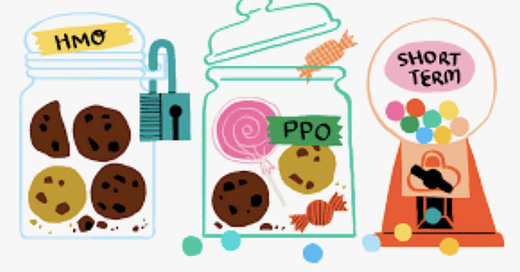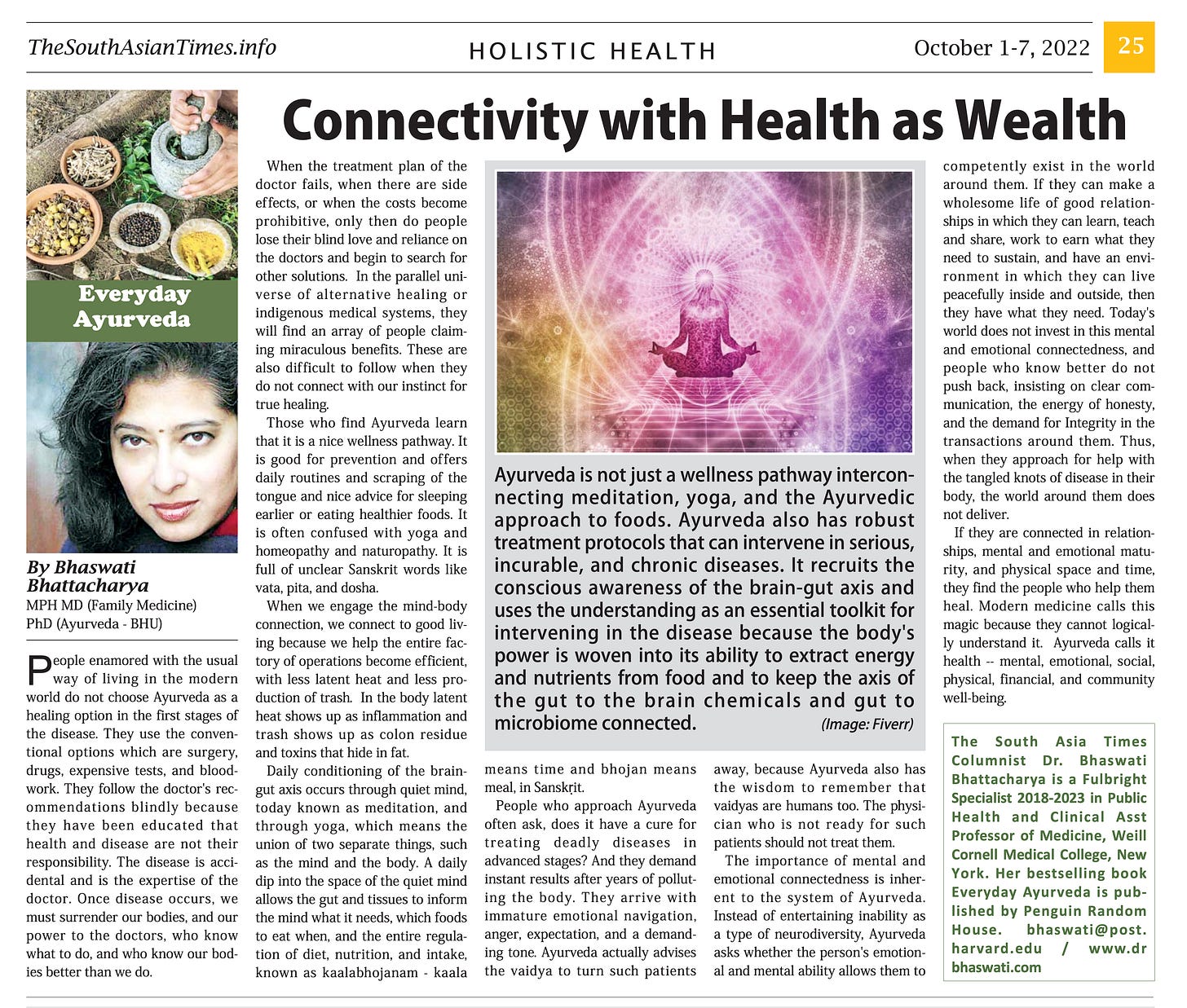Connecting Health as Wealth
image courtesy of npr.org
People enamored with the usual way of living in the modern world do not choose Ayurveda as a healing option in the first stages of disease. They use the conventional options which are surgery, drugs, expensive tests and bloodwork. They follow the doctor's recommendations blindly because they have been educated that health and disease are not their responsibility. Disease is accidental and is the expertise of the doctor. Once disease occurs, we must surrender our bodies, our power to the doctors, who know what to do, and who know our bodies better than we do.
image courtesy of Gramercy Pain Clinic
When the treatment plan of the doctor fails, when there are side effects, or when the costs become prohibitive, only then do people lose their blind love and reliance on the doctors and begin to search for other solutions. In the parallel universe of alternative healing or indigenous medical systems, they will find an array of people claiming miraculous benefits. These are also difficult to follow when they do not connect with our instinct for true healing.
Those who find Ayurveda learn that it is a nice wellness pathway. It is good for prevention and offers daily routines and scraping of the tongue and nice advice for sleeping earlier or eating healthier foods. It is often confused with yoga and homeopathy and naturopathy. It is full of unclear Sanskrt words like vata, pita and dosha.
Ayurveda is not just a wellness pathway interconnecting meditation, yoga and Ayurvedic approach to foods. Ayurveda also has robust treatment protocols that can intervene on serious, incurable and chronic diseases. It recruits the conscious awareness of the brain-gut axis and uses the understanding as an essential toolkit for intervening on disease, because the body's power is woven into its ability to extract energy and nutrients from food and to keep the axis of gut to brain chemicals and gut to microbiome connected. When we engage the mind-body connection, we connect to good living because we help the entire factory of operations become efficient, with less latent heat and less production of trash. In the body latent heat shows up as inflammation and trash shows up as colon residue and toxins that hide in fat.
Daily conditioning of the brain-gut axis occurs through quiet mind, today known as meditation, and through yoga, which means union of two separate things, such as the mind and the body. A daily dip into the space of the quiet mind allows the gut and tissues to inform the mind what it needs, which foods to eat when, and the entire regulation of diet, nutrition, and intake, known as kaala-bhojanam (kaala means time and bhojan means meal) in Sanskṛt.
People who approach Ayurveda often ask, does it have a cure for <insert incurable condition!>. And they demand instant results after years of polluting the body. They arrive with immature emotional navigation, anger, expectation, and a demanding tone. Ayurveda actually advises the vaidya to turn such patients away, because Ayurveda also has the wisdom to remember that vaidyas are humans too. The physician who is not ready for such patients should not treat them.
image courtesy of anybehavior.com
The importance of mental and emotional connectedness is inherent to the system of Ayurveda. Instead of entertaining inability as a type of neuro-diversity, Ayurveda asks whether the person's emotional and mental ability allows them to competently exist in the world around them. If they can make a wholesome life of good relationships in which they can learn, teach and share, work to earn what they need to sustain, and an environment in which they can live peacefully inside and outside, then they have what they need. Today's world does not invest in this mental and emotional connectedness, and people who know better do not push back, insisting on clear communication, the energy of honesty, and the demand for Integrity in the transactions around them. Thus, when they approach for help with the tangled knots of disease in their body, that world around them does not deliver.
image courtesy of Kristine Matulis
If they are connected in relationships, mental and emotional maturity, and physical space and time, they find the people who help them heal. Modern medicine calls this magic, because they cannot logically understand it. Ayurveda calls it health -- mental, emotional, social, physical, financial and community well-being.
week 128. TheSouthAsianTimes
Download the .pdf version of this column by clicking on the image.
Dr. Bhaswati Bhattacharya is a Fulbright Specialist 2018‐2023 in Public Health, a family physician in the Department of Medicine at Weill Cornell Medical College in New York, NY, and also holds doctorates in pharmacology and Ayurveda. She teaches ayurvedic nutrition on global platforms and chooses ayurveda for most medical care, using drugs, surgery or radiology as the last option. She has spent tens of thousands of dollars on unused health insurance, which is actually disease insurance and nothing to do with health at all.
Her bestselling book Everyday Ayurveda is published by Penguin Random House.
To order an autographed copy, write to bhaswati@post.harvard.edu.
To learn more, visit www.drbhaswati.com








